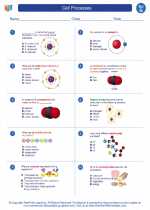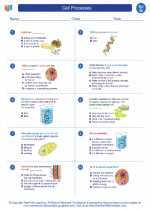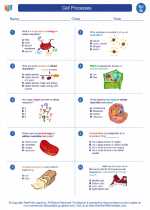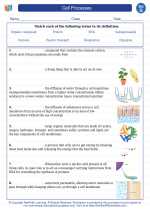Leaves
Leaves are the primary photosynthetic organs of plants. They are responsible for the process of photosynthesis, where they absorb light energy, carbon dioxide, and water to produce glucose and oxygen. Additionally, leaves play a crucial role in transpiration, gas exchange, and storage of food reserves.
Structure of a Leaf
A typical leaf consists of several layers including:
- Epidermis: The outermost layer that protects the leaf.
- Palisade layer: Contains chloroplasts and is the main site of photosynthesis.
- Spongy layer: Allows for the exchange of gases.
- Veins: Transport vessels for water, nutrients, and sugars.
- Stoma: Pores on the leaf surface for gas exchange.
Functions of Leaves
Leaves perform various functions essential for the plant's survival:
- Photosynthesis: Conversion of light energy, carbon dioxide, and water into glucose and oxygen.
- Transpiration: The process of water movement through the plant and its evaporation from aerial parts, including leaves.
- Gas exchange: The intake of carbon dioxide and release of oxygen through stomata.
- Storage: Some leaves store food reserves, such as in the case of succulent leaves.
Adaptations of Leaves
Leaves have various adaptations to suit different environmental conditions:
- Needle-like leaves: Found in coniferous trees to reduce water loss in arid conditions.
- Large surface area: Broad leaves in rainforest plants to capture more sunlight.
- Hairy leaves: Help reduce water loss by creating a boundary layer of still air.
- Succulent leaves: Store water for arid environments.
Study Guide
To study leaves effectively, consider the following:
- Understand the structure of a leaf and its various layers.
- Learn the process of photosynthesis and the role of leaves in this process.
- Explore the functions of leaves, including transpiration and gas exchange.
- Investigate the adaptations of leaves to different environments and their significance.
- Examine different types of leaves and their unique characteristics.
Understanding the importance of leaves and their role in plant survival is crucial for comprehending the broader concepts of plant biology and ecology.
.◂Science Worksheets and Study Guides Seventh Grade. Cell Processes
Study Guide Cell Processes
Cell Processes  Activity Lesson
Activity Lesson Osmosis & Diffusion
Osmosis & Diffusion  Worksheet/Answer key
Worksheet/Answer key Cell Processes
Cell Processes  Worksheet/Answer key
Worksheet/Answer key Cell Processes
Cell Processes  Worksheet/Answer key
Worksheet/Answer key Cell Processes
Cell Processes  Worksheet/Answer key
Worksheet/Answer key Cell Processes
Cell Processes  Vocabulary/Answer key
Vocabulary/Answer key Cell Processes
Cell Processes  Vocabulary/Answer key
Vocabulary/Answer key Cell Processes
Cell Processes  Vocabulary/Answer key
Vocabulary/Answer key Cell Processes
Cell Processes  Vocabulary/Answer key
Vocabulary/Answer key Cell Processes
Cell Processes  Vocabulary/Answer key
Vocabulary/Answer key Cell Processes
Cell Processes  Vocabulary/Answer key
Vocabulary/Answer key Cell Processes
Cell Processes  Vocabulary/Answer key
Vocabulary/Answer key Cell Processes
Cell Processes 

 Activity Lesson
Activity Lesson
 Worksheet/Answer key
Worksheet/Answer key
 Worksheet/Answer key
Worksheet/Answer key
 Worksheet/Answer key
Worksheet/Answer key
 Worksheet/Answer key
Worksheet/Answer key
 Vocabulary/Answer key
Vocabulary/Answer key
 Vocabulary/Answer key
Vocabulary/Answer key
 Vocabulary/Answer key
Vocabulary/Answer key
 Vocabulary/Answer key
Vocabulary/Answer key
 Vocabulary/Answer key
Vocabulary/Answer key
 Vocabulary/Answer key
Vocabulary/Answer key
 Vocabulary/Answer key
Vocabulary/Answer key

The resources above cover the following skills:
LIFE SCIENCE
From Molecules to Organisms: Structures and Processes
Engage in argument from evidence to support claims of the cell theory.
Gather and synthesize information to explain how prokaryotic and eukaryotic cells differ in structure and function, including the methods of asexual and sexual reproduction.
Construct an explanation of the function (e.g., mitochondria releasing energy during cellular respiration) of specific cell structures (i.e., nucleus, cell membrane, cell wall, ribosomes, mitochondria, chloroplasts, and vacuoles) for maintaining a stable environment.